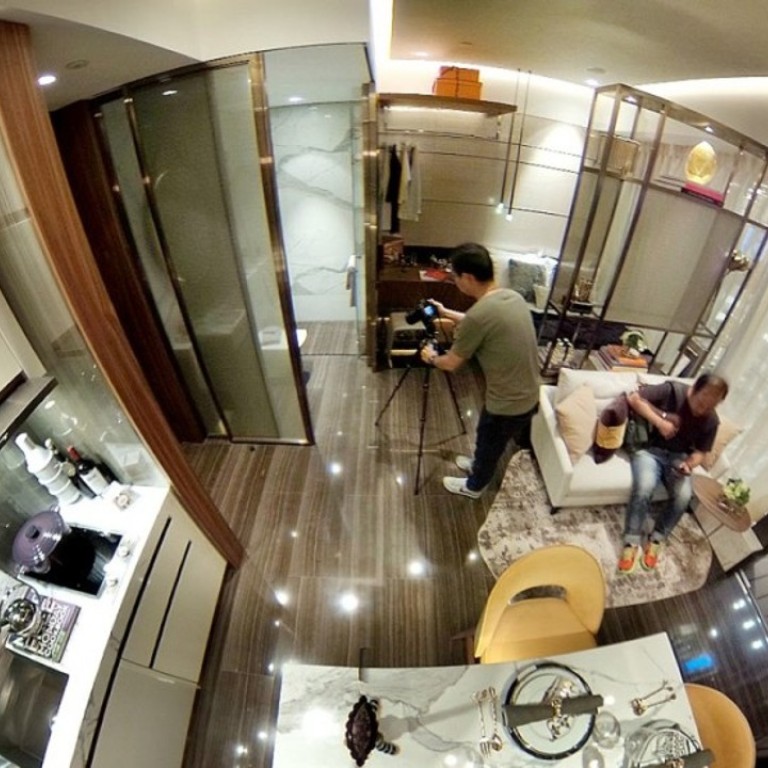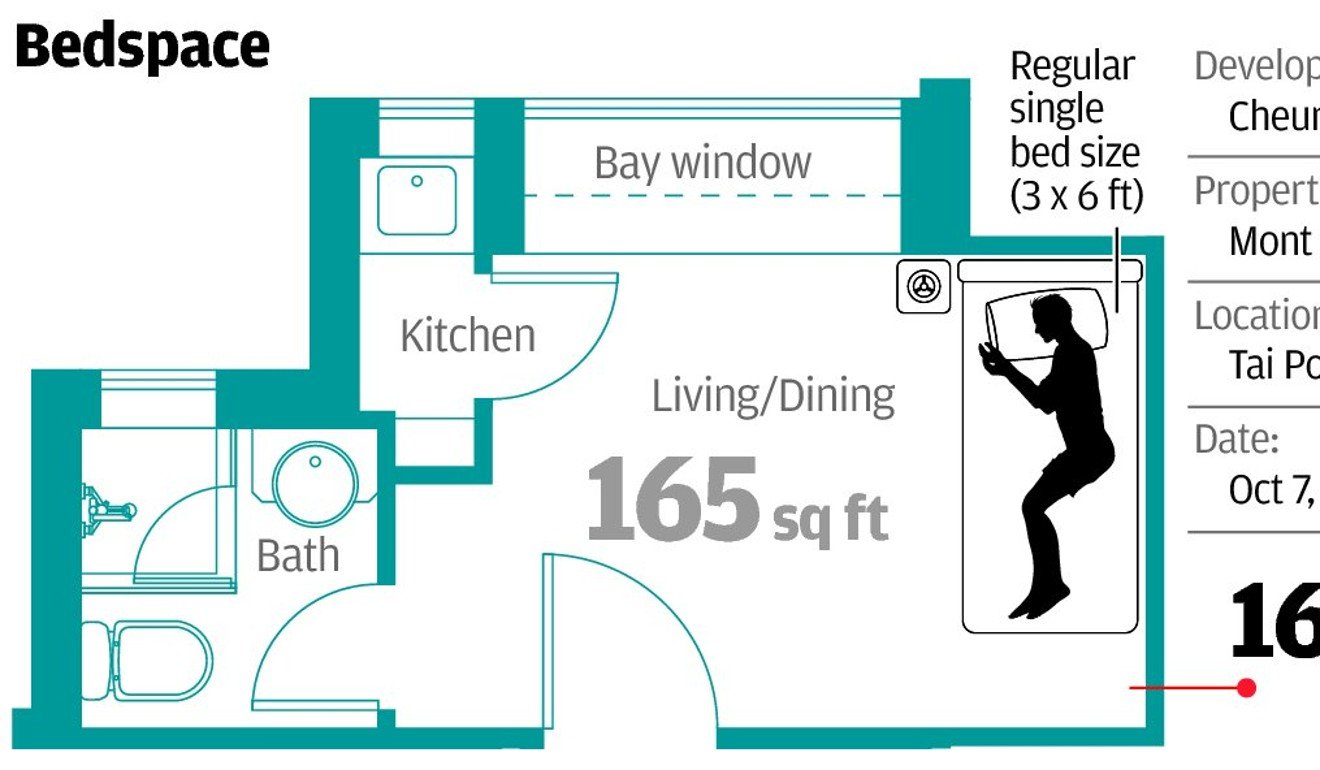
Parking space-size flats to be the new norm, as affordability eludes Hong Kong’s first-time buyers
Nano flats, or apartments each smaller than 200 square feet, will be the new norm in Hong Kong as 2,100 of such complexes are on drawing boards through 2020.
At least 2,100 nano flats are expected to be completed between now and 2020 in Hong Kong, to lure more young homebuyers into getting their first foot on the property ladder in the world’s most expensive housing market.
The new supply of the flats (classed as saleable areas below 200 square feet in size, or 18 square meters) will amount to an average of 510 units per year between 2017 and 2020, up from 151 units per year between 2014 and 2016, according to a latest report by global property agency, JLL.
The majority will be located in the New Territories, well away from the city’s core business districts.
Unlike in many western cities such as London and Sydney, Hong Kong does not have legal requirements on the minimum size of a flat. And skyrocketing housing prices have pushed first-time buyers into opting for these fast-emerging, often luxurious mini units.

The demand has seen more local developers rushing to create smaller properties, which have lower sale prices but higher average prices per sq ft.
“Most first-time buyers can afford property costing under HK$6 million (US$769,000),” said Henry Mok, regional director of capital markets at JLL. “However, that budget would only allow them to buy a sizeable flat in an old housing estate (over 30-years-old) in urban areas, given prices have reached record highs.”
They would much rather buy a new nano flats of their own, he added.
Some of the smallest projects in the city are set to provide nano flats ranging in size from 128 sq ft upwards, which is smaller than a standard 134 sq ft Hong Kong car parking space.
Although Chief Executive Carrie Lam Cheng Yuet-ngor unveiled her new “Starter Homes” scheme earlier this month to sell flats to first-time buyers at a below-market rates, which some think might have a slight effect on nano flat sales, property agents remain confident buyers will still likely choose a nano, at least over the next few years.
“Given the supply of Starter Homes will take time to realise, buyers with a pressing need for a home may still opt for the private residential market,” said Ingrid Cheh, JLL’s associate director of research.
The city’s house prices will rise further as the demand remains strong, according to JLL’s estimates.

